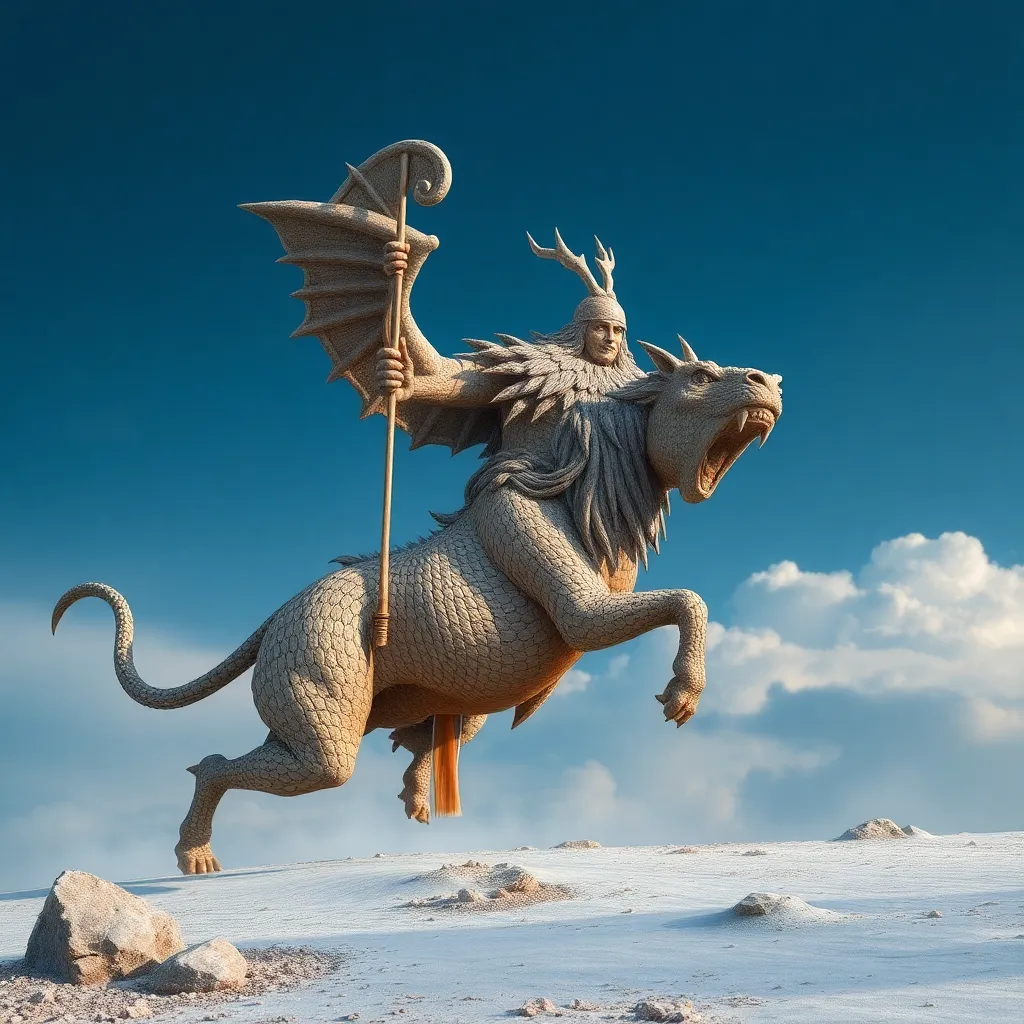The Role of Mythological Creatures in Greek Warfare Narratives
I. Introduction
Greek mythology is a rich tapestry of stories and characters that reflects the beliefs, values, and cultural significance of ancient Greece. It served not only as a means of explaining the world but also as a framework within which the Greeks understood their history and society. The myths surrounding gods, heroes, and mythical creatures provide profound insights into human nature, morality, and the complexities of warfare.
This article aims to explore the intersection of mythological creatures and warfare in Greek narratives, shedding light on how these fantastical beings influenced the ideals of heroism, the nature of conflict, and the strategies employed by warriors in ancient Greece.
II. The Symbolism of Mythological Creatures in Greek Warfare
Mythological creatures in Greek narratives often embody symbolic meanings that resonate with human fears and societal values. Some notable examples include:
- The Minotaur: Representing the brutality and savagery of unchecked human instincts, the Minotaur symbolizes the chaos of war and the sacrifices made to quell such chaos.
- Cerberus: The three-headed dog guarding the gates of the Underworld symbolizes the inevitability of death and the fear of the unknown, especially during times of conflict.
- The Chimera: A monstrous creature that is part lion, goat, and serpent, the Chimera symbolizes the fear of the unpredictable nature of warfare and the blending of different threats.
These creatures serve not only as antagonists but also as reflections of human fears, embodying the societal values that the Greeks held dear. They personify the struggles and moral dilemmas faced during warfare, creating a rich narrative landscape that deepens the understanding of conflict.
III. Mythological Creatures as Warriors and Protectors
Some mythological creatures played pivotal roles on the battlefield, influencing key conflicts in Greek history and mythology. Notable examples include:
- Pegasus: The winged horse that aided Bellerophon in his battles against the Chimera and later in the Trojan War. Pegasus symbolizes divine favor and the elevated status of heroes.
- The Sphinx: Known for her riddles and cunning, the Sphinx was a formidable adversary that tested the wits of warriors, representing the idea that intelligence is as crucial as strength in warfare.
These creatures not only participated in battles but also influenced the outcomes of conflicts by embodying qualities that warriors aspired to possess, such as bravery, wisdom, and strength.
IV. The Influence of Mythological Creatures on Greek Military Strategy
The myths surrounding these creatures shaped the tactics and strategies employed by Greek warriors. Beliefs in the supernatural often guided the actions of soldiers, leading to unique military approaches:
- Divine Intervention: Many warriors believed that the favor of gods and mythical creatures could influence the outcome of battles, prompting them to invoke these beings for protection and guidance.
- Psychological Warfare: The mere belief in mythological creatures could instill fear in enemies, affecting their morale and combat effectiveness. Stories of fearsome monsters could deter foes before a battle even began.
This intertwining of myth and military strategy illustrates how deeply ingrained these narratives were in the psyche of Greek warriors, affecting their approach to combat and their understanding of fate and destiny.
V. Creatures as Allegories for Human Traits in Warfare
Mythological creatures often serve as allegories for human traits, imparting moral lessons that resonate through the ages:
- Bravery and Sacrifice: Creatures like the Minotaur remind us of the sacrifices made by heroes to protect their people and the brutal realities of war.
- Cunning and Deceit: The Sphinx embodies the necessity of intelligence and cunning in warfare, teaching that brute strength alone cannot ensure victory.
The duality of creatures as both adversaries and allies in warfare narratives highlights the complexity of human nature and the myriad traits that contribute to success or failure in conflict.
VI. The Role of Mythological Creatures in Literature and Art
Literature and art from ancient Greece are replete with references to mythological creatures, particularly in relation to warfare. Key literary works include:
- “The Iliad”: This epic poem features numerous mythical beings, illustrating their roles in the Trojan War and how they influenced the actions of gods and mortals alike.
- “The Odyssey”: Odysseus encounters various creatures and challenges that test his heroism and intellect, emphasizing the connection between mythology and the human experience of conflict.
In ancient Greek art, creatures like the Minotaur and Pegasus are often depicted in battle scenes, symbolizing the intertwining of mythology and military endeavors. These artistic representations serve not only as decoration but also as a means of conveying moral and cultural messages about the nature of war.
VII. The Legacy of Greek Mythological Creatures in Modern Warfare Narratives
The influence of ancient Greek myths continues to resonate in contemporary storytelling, particularly in contexts related to war:
- Literature: Modern authors often draw upon mythological themes and creatures to explore the complexities of human conflict and heroism.
- Film: Movies such as “Clash of the Titans” and “Troy” reinterpret these myths, bringing ancient battles and creatures to life for new audiences.
- Video Games: Many games feature mythological creatures, allowing players to engage with these narratives in interactive ways, often within military contexts.
This enduring legacy highlights the relevance of Greek mythology in shaping modern perceptions of warfare, heroism, and the human condition.
VIII. Conclusion
In summary, mythological creatures play a significant role in understanding Greek warfare narratives. They serve as symbols of human fears, ideals, and moral lessons, influencing military strategies and the portrayal of heroism in ancient literature and art. The legacy of these myths continues to impact modern storytelling, reflecting their enduring significance in shaping perceptions of war and the complexities of the human experience.
As we reflect on the narratives of these ancient creatures, we gain a deeper appreciation for their contributions to our understanding of conflict, valor, and the human spirit in the face of adversity.




